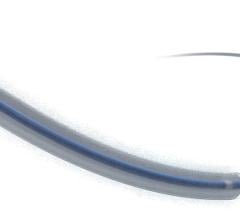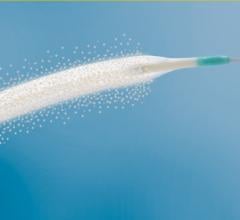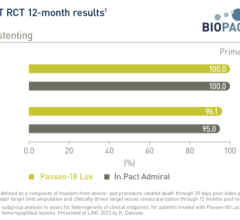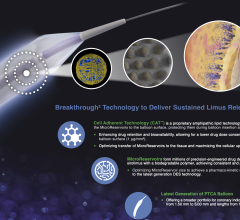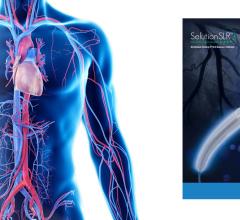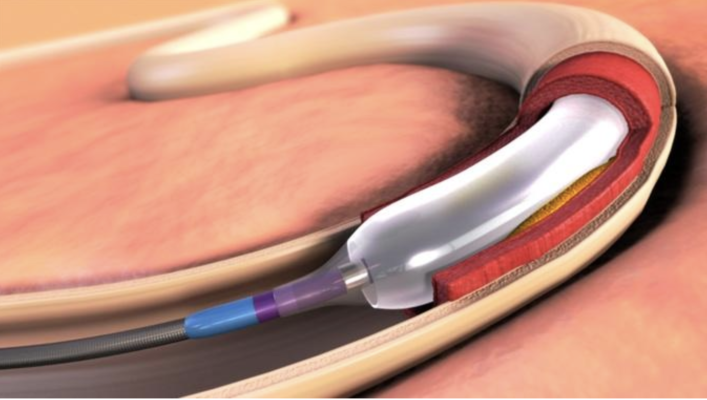
November 3, 2022 — Medtronic, a global leader in medical technology, today announced the results of two clinical studies on the use of the IN.PACTAdmiral drug-coated PTA balloon catheter (DCB). These results were presented in late-breaking clinical trial sessions at VIVA 2022 in Las Vegas. One presented a pooled analysis of DCB verses bare metal stents (BMS) and the other reviewed clinical outcomes of DCB treatment for in-stent restenosis in a high-risk, real-world cohort.
“Medtronic is deeply committed to gathering ongoing clinical evidence to evaluate product performance,” said Dr. John Laird, MD, Chief Medical Officer for Peripheral Vascular Health at Medtronic. “The findings from these studies, each of which evaluated the IN.PACT Admiral DCB, further support the use paclitaxel-coated balloons in the treatment of femoropopliteal disease.”
On November 1, Dr. Mehdi Shishehbor, DO, MPH, Ph.D., University Hospitals Health System, Harrington Heart and Vascular Institute, Cleveland, Ohio, presented a pooled analysis of four prospective, multicenter studies to compare 3-year outcomes in patients with femoropopliteal disease treated with the IN.PACT Admiral DCB versus BMS.§ A paper describing this data was published online on November 1 in the Journal of the American College of Cardiology.
A total of 771 patients (288 DCB, 483 BMS) were included in the primary analysis. Based on inverse probability of treatment weighting (IPTW)-adjusted Kaplan-Meier estimates, DCB demonstrated superior primary patency and freedom from clinically driven target lesion revascularization (TLR). Highlights include:
· Twelve-month primary patency: 90.4% DCB, 80.9% BMS, P=0.007
· Freedom from 36-month clinically driven TLR: 85.6% DCB, 73.7% BMS, P=0.001
· Cumulative incidence of 36-month major adverse events: 25.3% DCB, 38.8% BMS, P<0.001
· No statistically significant differences observed in the cumulative incidence of IPTW-adjusted all-cause mortality (9.5% DCB, 13.0% BMS, P=0.23), major target limb amputation (0.0% DCB, 0.8% BMS, P=0.29), or thrombosis at the target lesion site (1.0% DCB, 2.1% BMS, P=0.41) through 36 months
“Dr. Shishehbor’s study supports the use of the IN.PACT Admiral DCB as a first-line treatment in femoropopliteal lesions to minimize the need for a metal scaffold,” Dr. Laird said.
On November 2, Dr. Daniel Bertges (University of Vermont Medical Center, Burlington, VT) presented an analysis conducted in collaboration between Medtronic and the Society for Vascular Surgery (SVS) Vascular Quality Initiative (VQI). This analysis evaluated the IN.PACT Admiral DCB in 300 patients with femoropopliteal in-stent restenosis across 43 sites. Participants included real-world patients with ischemic rest pain (Rutherford 4) (20%), diabetes (56%), total occlusions (43%), and TASC C-D lesions (54%). Clinical outcomes by Kaplan-Meier estimates for this high-risk, real-world cohort include:
· Freedom from TLR: 89.8% at 12 months and 72.0% at 24 months
· Freedom from major target limb amputation: 99.6% at 12 months and 98.8% at 24 months
· Freedom from all-cause mortality: 95.3% at 12 months and 89.3% at 24 months
“I am pleased about the collaboration between Medtronic and SVS to continue generating real world data. This study continues to support the use of the IN.PACT Admiral DCB for the treatment of in-stent restenosis in a high-risk, real-world population,” Dr. Laird said. “Dr. Bertges’ study demonstrates that when stents fail, IN.PACT Admiral is an effective treatment option.”
For more information: www.medtronic.com
§Patient-level data were pooled from the DCB arms of the IN.PACT SFA I/II and IN.PACT SFA Japan randomized controlled trials and the prospective, multicenter, single-arm Complete SE and DURABILITY II BMS studies. DCB and BMS were compared using advanced statistical methods (inverse probability of treatment weighting; IPTW).

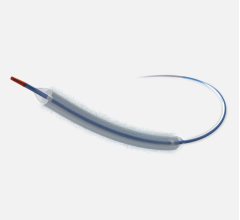
 August 22, 2025
August 22, 2025 
